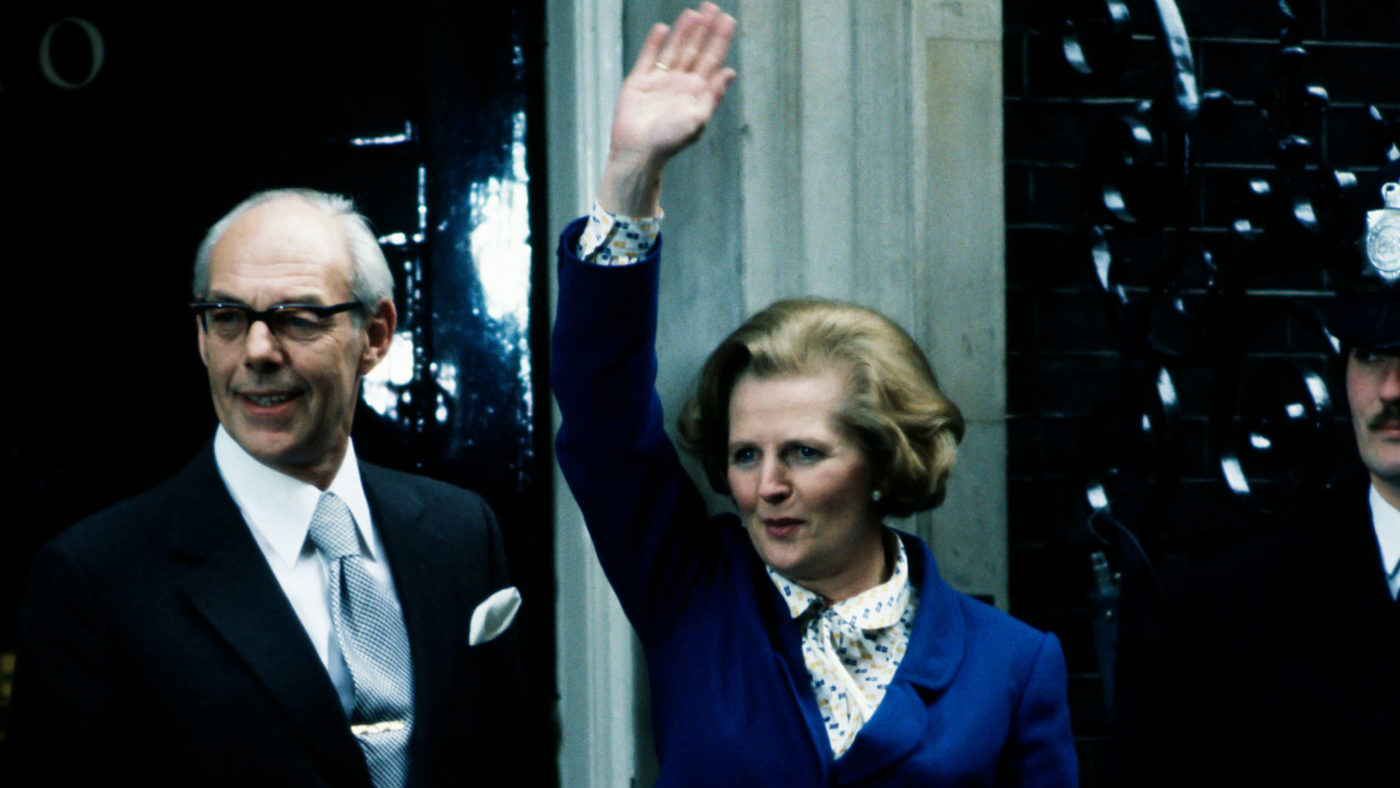In the midst of a crisis, it’s natural to reach for historical comparisons. This time, the go-to analogy seems to be the Second World War – not least because the Prime Minister is a well-known devotee of Winston Churchill. Even the Queen weighed in with her TV message, with an unexpected tearjerker on evacuees and a Vera Lynn-inspired wartime message.
There’s much to be said for the comparison. As today, politics changed radically almost overnight, with the British state reshaped for a single purpose and ordinary economic activity severely limited.
Where the analogy falls down is in the analysis of what comes after. Plenty of people on the left and right would have us believe that, just like World War 2, the big government measures we’ve seen so far will be a foot in the door for socialism.
Thankfully, that’s only half right. The election in 1945 did see Conservativism swept aside, some would say right up until Thatcher’s win in 1979. But Attlee didn’t win in the postwar election because he promised more of the same. His election was more a yearning for change than collectivism. He promised a radical departure from the wartime norm: peace, demilitarisation, welfare, housing, jobs, pensions. It was Churchill who spoke of empire, bombs and Gestapo – asking to ‘finish the job’ – and the electorate comprehensively withheld from him the chance to do so.
That’s because after extraordinary times the public want to return to a new normal. It’s perhaps why we hark back to past crises – by definition, we have seen them come to an end, and normal life resume better than it was before.
When the coronavirus crisis has passed, Britain will certainly have moved to the left. We have expanded government to unthinkable levels: paying wages, propping up businesses and limiting freedoms. The Office for Budget Responsibility suggests that the deficit this year will be £218 billion higher than their March budget estimate. The national debt has now passed £2 trillion, with barely a peep of recognition.
As we have shown in our research at the TaxPayers’ Alliance – referenced by the former chancellor Sajid Javid in his resignation speech – the tax burden is the highest it’s been for 50 years. The post-Covid economy will likely be in temporary tatters, with debt through the roof and employment levels through the floor. Numbers from Deloitte outline a potential 6.8% contraction in GDP, making 2020 the worst since 1921, when the economy shrank by almost 10% against a backdrop of an end to wartime production and massive military demobilisation.
Like 1945, the public will be demanding change. And change in 2020 will not mean yet more government intervention. In fact, many might be inclined to want precisely the opposite, especially since they’ve seen what life is like when businesses close their doors and the value of savings plummets. As the former Labour leader himself suggested, this crisis has been a taste of Corbynism, and it’s fair to say the public haven’t enjoyed it.
Rediscovering the road back to economic growth will be imperative. Stimulating demand with extra state spending certainly won’t be enough: debts will need to be paid; businesses will need to be revived; the housing market will need a kickstart. The state will have to shrink back to a peacetime footing, or face breaking down as bailed-out businesses empty the coffers.
Unemployment will have gone up sharply and inflation might start to rise too. So if we’re looking for a historical analogy, it’s not 1945 we should be looking to, but 1979.
Like Margaret Thatcher, this government will have little choice but to undertake serious supply-side repair. The TaxPayers’ Alliance has plenty of ideas of how we can move towards being a pro-enterprise country.
Corporation tax cuts will be back on the table, after our polling last year which showed blue collar voters are more than twice as likely as voters from the professional classes to back cutting corporation tax to 12.5%, the same level as Ireland’s. Cuts to employers’ national insurance could restart Britain’s job miracle. Stamp duty reductions could get families moving home again. A basic rate income tax cut, of the sort teased by Javid after he left government, would help many households with the rising cost of living.
For Tories, and especially an intellectually energetic one like Boris, this should be a dream come true. Socialist solutions will seem very much more of the same. After months of lauding the economies that have coped best with coronavirus, it’s quite plausible Brits will want to emerge more like Singapore and South Korea than the People’s Republic of China.
That leaves the new Labour leader, Keir Starmer, with a dilemma indeed. If he mirrors Tony Blair’s strategy of moderation, Labour could start a return to winning ways. Back in 1997 promises of no tax rises, reforming public services and lower unemployment struck a chord and emphatically defeated the Tories.
But Starmer will have to resist the instinct to keep fighting the coronavirus war by demanding ever more government involvement in the economy. In that sense, he would do well to heed the experience not of Attlee, but his opponent Churchill: refighting old battles with cries that you were right all along will not win you the peace.
However we emerge from this crisis, the public and the economy won’t accept more of the same. Big state socialism is having its day, but like all crises it must come to an end. Learn the wrong lessons from history and, of course, you’re doomed to repeat it. Change is coming and, like 1945 and 1979, the winners will be the ones who fight hardest for it.
Click here to subscribe to our daily briefing – the best pieces from CapX and across the web.
CapX depends on the generosity of its readers. If you value what we do, please consider making a donation.


